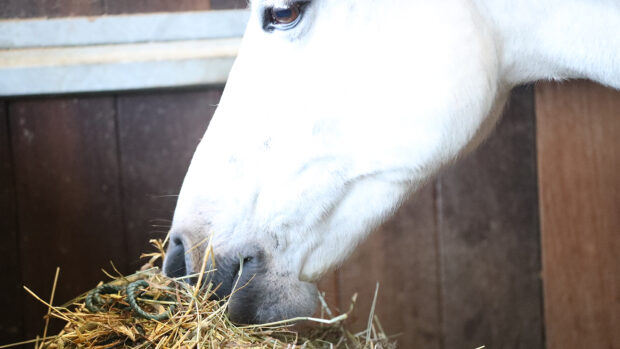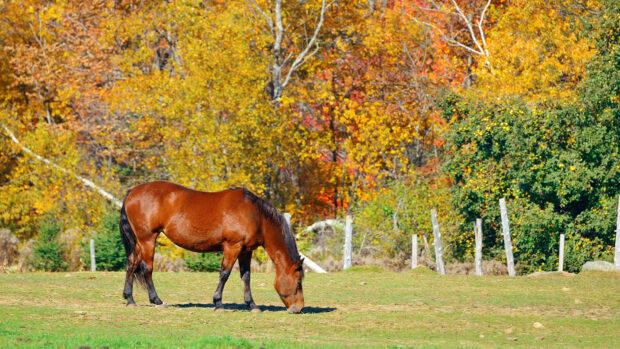Promotional feature with Dengie
What’s the best thing you can do to reduce the risk of your horse or pony getting laminitis? Keep them at a healthy weight is the simple answer. It is often easier said than done, but letting your horse or pony become overweight significantly increases the risk of them developing laminitis.
Why is this? It is known that higher levels of insulin circulating in the body for prolonged periods of time is sufficient to cause laminitis, even if blood sugar levels are normal. So the next question is what causes insulin levels to rise and the two key issues highlighted by researchers are Pituitary Pars Intermedia Dysfunction (PPID formerly known as Cushing’s Syndrome) and Equine Metabolic Syndrome (EMS) – which is typically characterised by obesity. Both of these cause disruptions to the regulation of hormones in the body such as insulin. This is why managing your horse’s weight is the best thing you can do to reduce their risk of this horrible disease.
Top tips for keeping your horse at a healthy weight
Choose really low sugar and starch feeds to maintain normal metabolic function, such as Dengie Hi-Fi Molasses Free which has a naturally occurring sugar level of 2.5% and just 1.5% starch. Some mixes and cubes will claim to be low in sugar and starch and they probably are relative to other cereal based feeds but they may still contain 12-20% starch. Feed, hay, grass and even straw, aren’t sugar free.
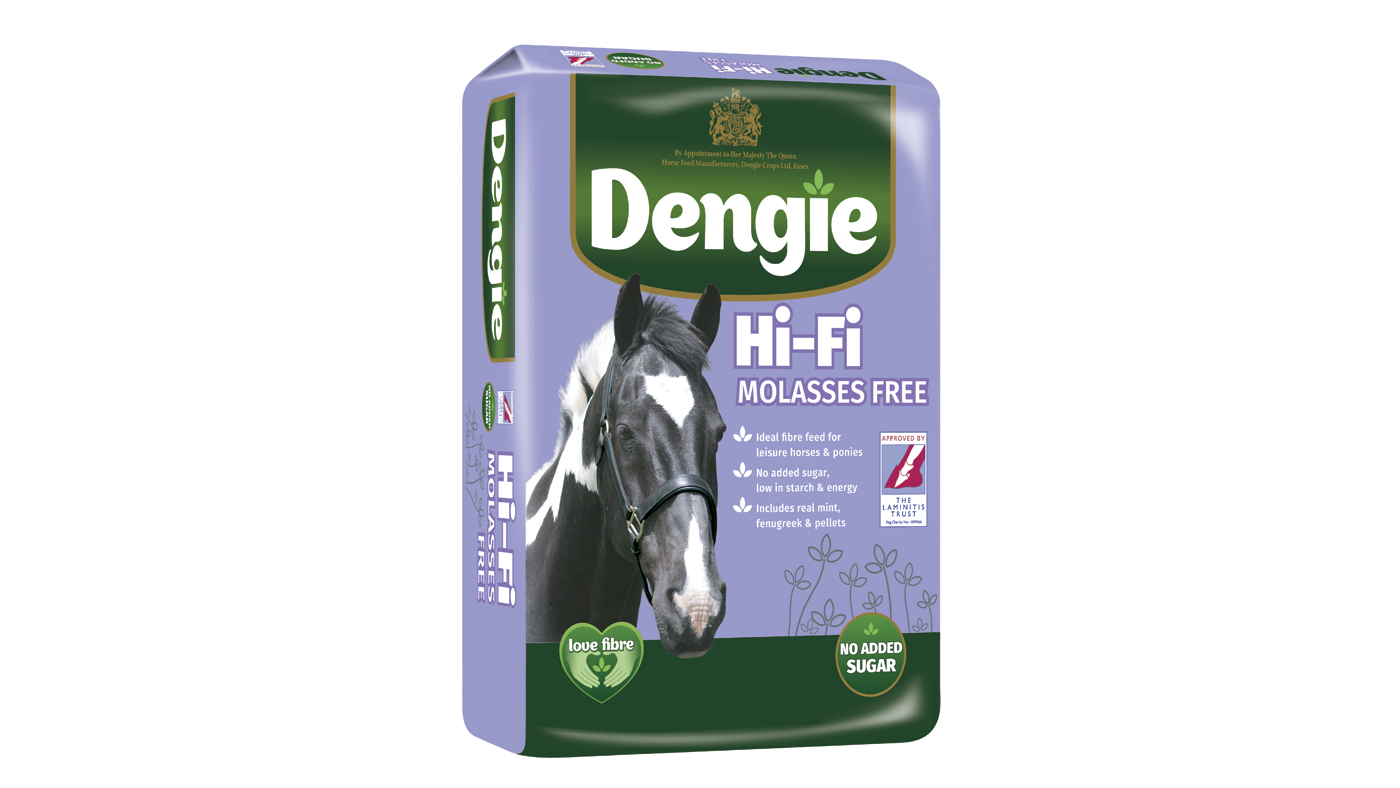
Monitor your horse’s weight – weigh tape and condition score regularly so you spot changes early. If you notice your horse’s weight going up, restrict grazing using a muzzle, bare paddock or track system.
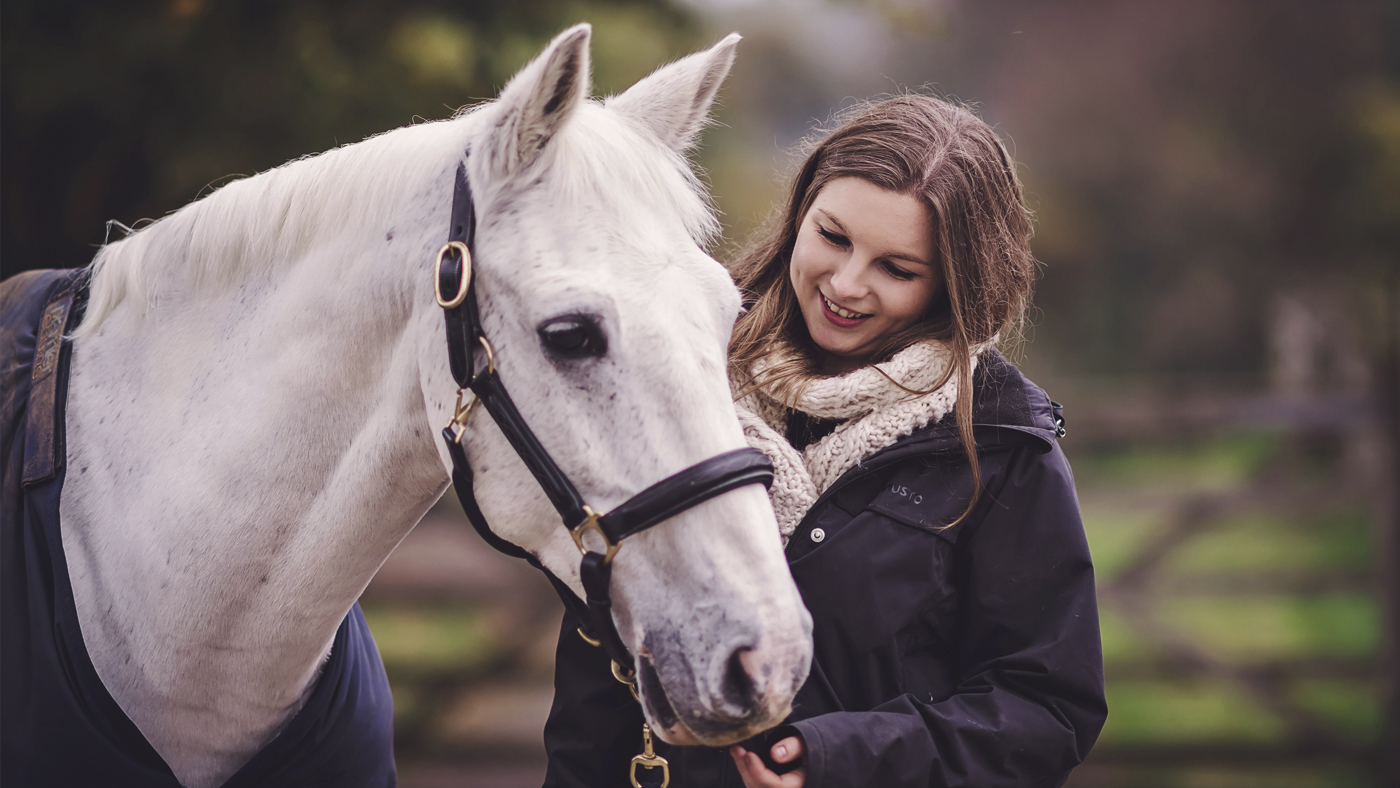
Weigh the hay/haylage you are feeding – if you’re not sure how much your horse or pony should receive ask a nutritionist.
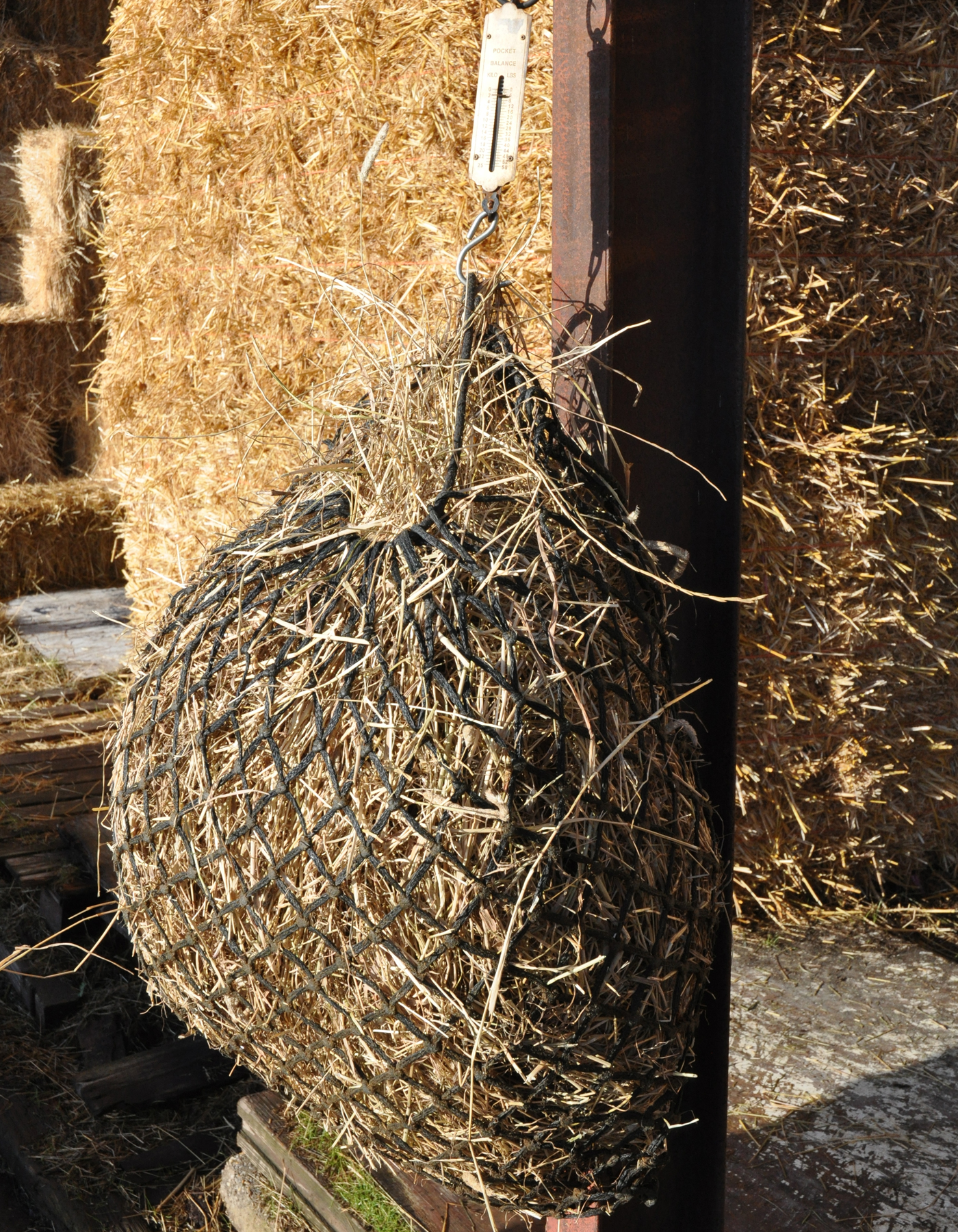
Soaking hay helps to reduce sugar content but doesn’t necessarily change the calorie content very much so consider getting it analysed to know exactly what your horse is consuming. Forages that contain grass varieties such as Timothy tend to be lower in energy and sugar than varieties such as rye grass.
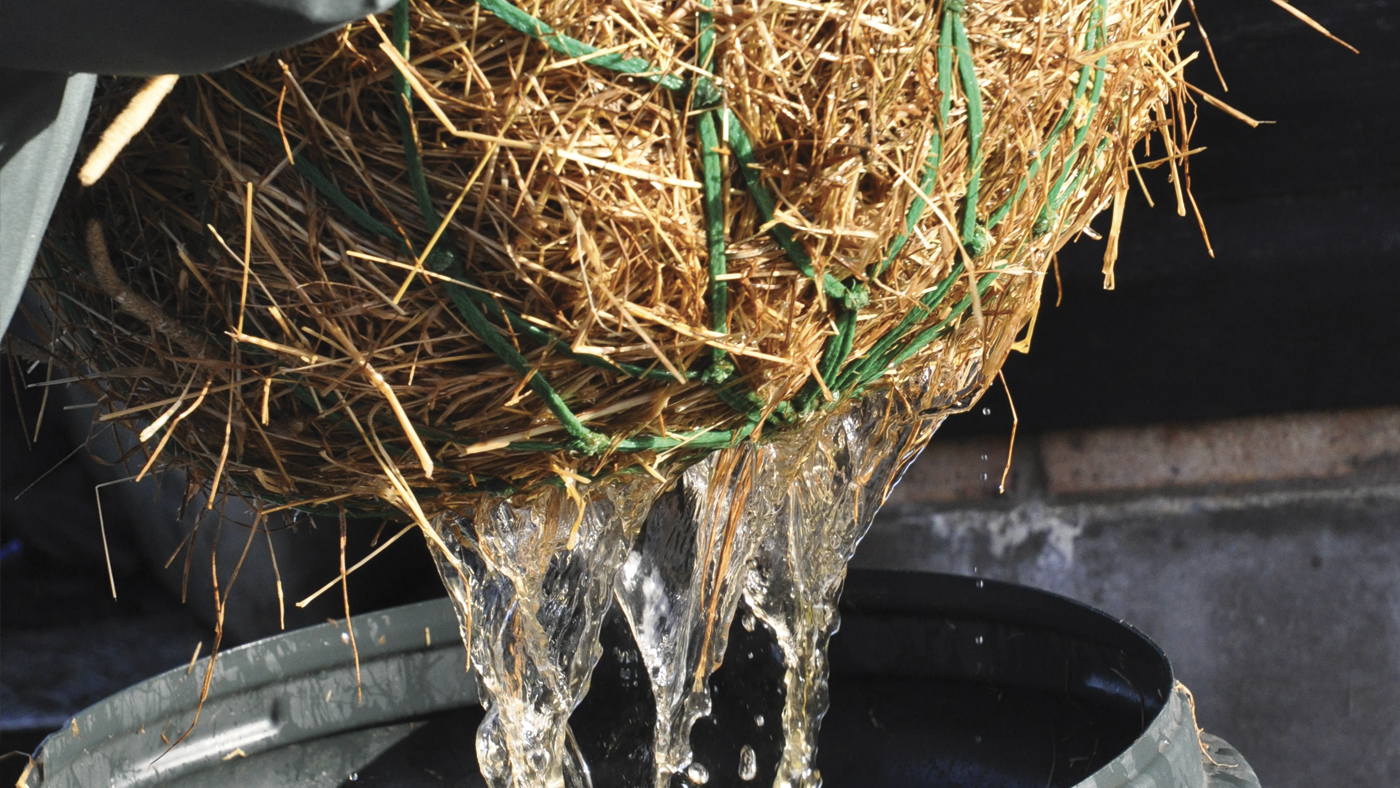
Ensure his diet is balanced – add a low-calorie balancer or broad-spectrum vitamin and mineral supplement. This is especially important when on a ‘diet’ or reduced rations as your horse will be getting less from his forage.
Exercise can help to increase energy expenditure and so help contribute to weight loss. There is some evidence in other species that exercise also helps to improve insulin sensitivity. Compose an exercise plan with the help of your trainer or instructor; this could be ridden or in-hand, building up the duration and intensity slowly.
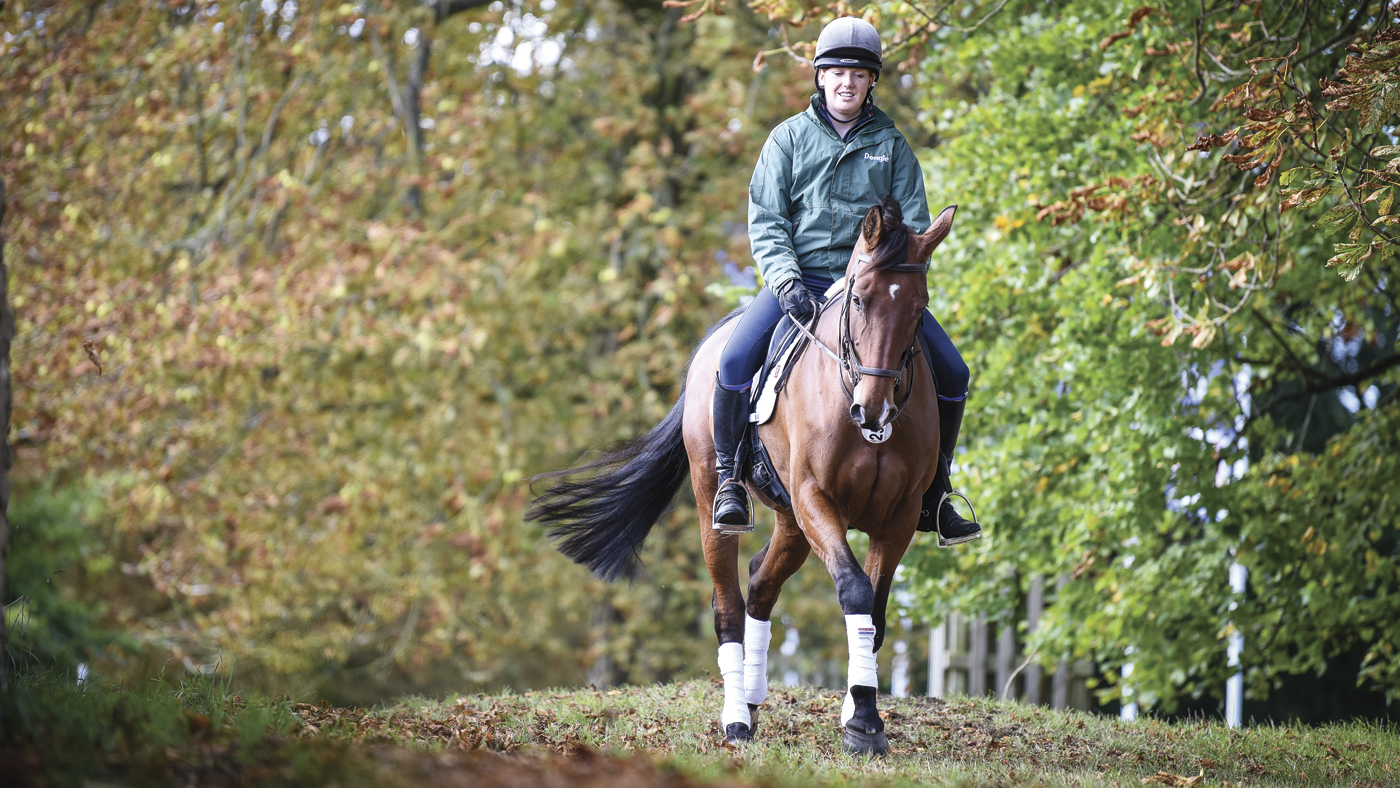
How to choose the right low-calorie feed from the Dengie range for your horse:

Click here for more information on Hi-Fi Molasses Free
Ideal for:
- Contains no added sugar, just 1.5% starch and 2.5% naturally occurring sugars
Key benefits:
- Includes mint, fenugreek & alfalfa pellets for great taste
- 100% British origins ingredients
- Free from grass so no unnecessary sugar
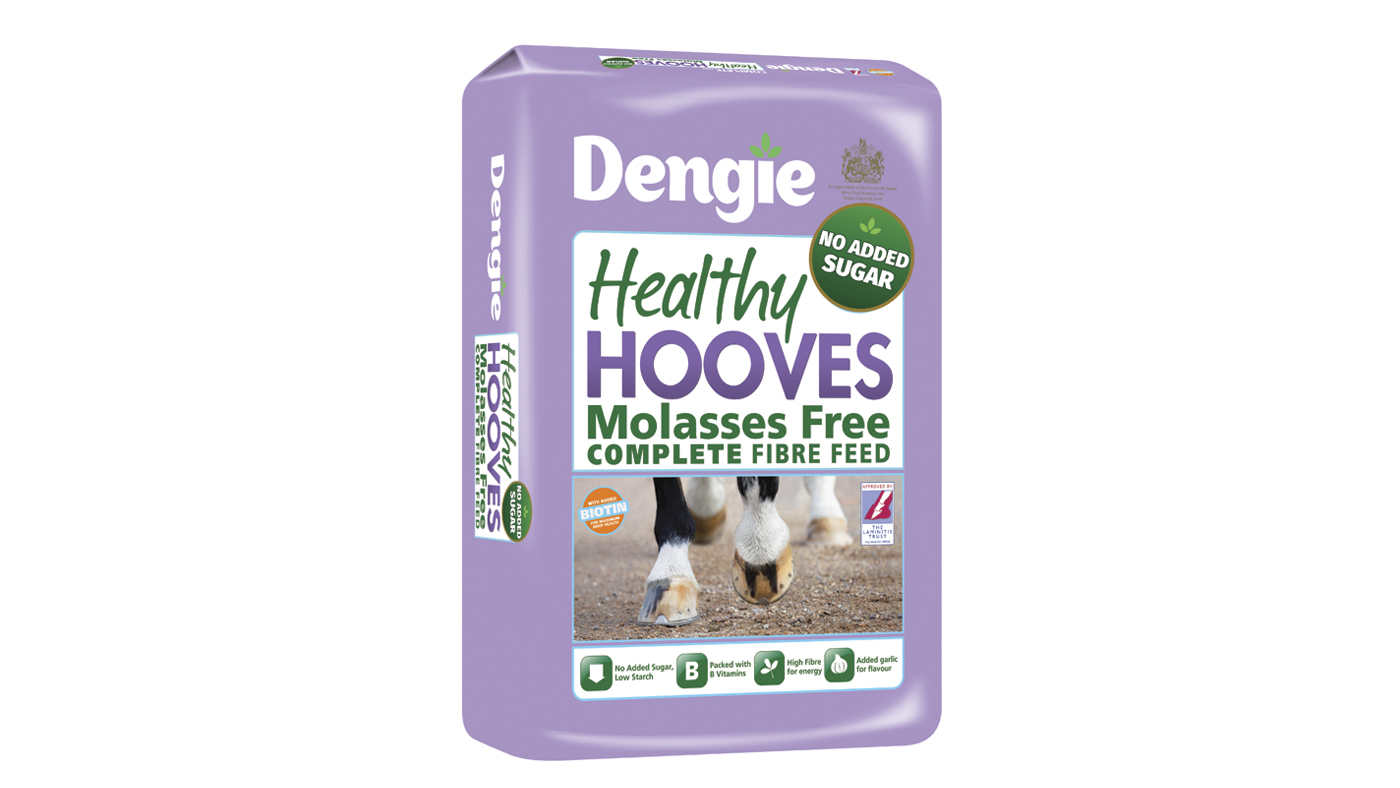 Click here for more information on Healthy Hooves
Click here for more information on Healthy Hooves
Ideal for:
- Convenient feeding – fully balanced so no need to add anything else if fed at the recommended amounts
Key benefits:
- Low in calories
- Contains no added sugar, just 2.5% naturally occurring sugars & 1.5% starch
- Includes garlic & alfalfa pellets for interest & taste
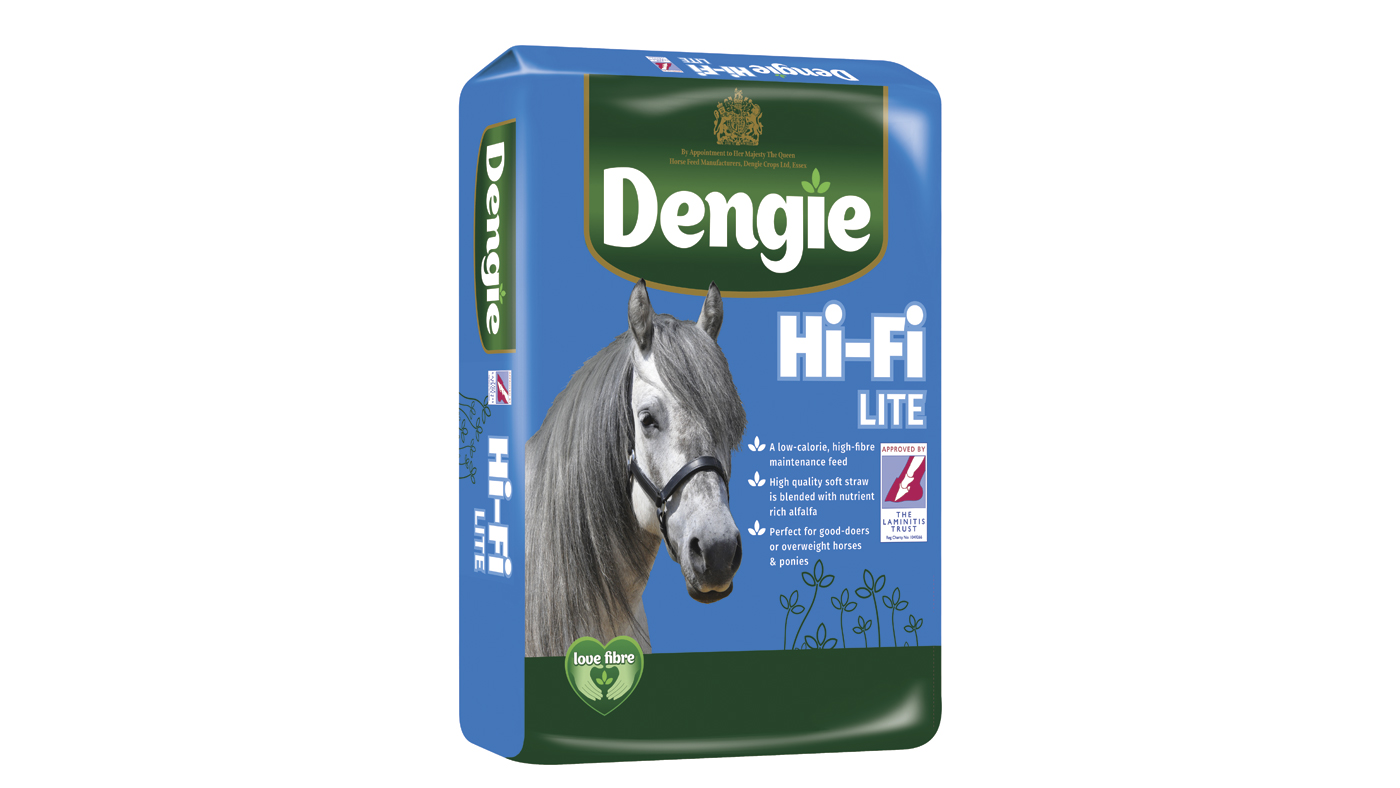 Click here for more information on Hi-Fi Lite
Click here for more information on Hi-Fi Lite
Ideal for:
- Contains less sugar – 7% – than typical grass hays
Key benefits:
- Low in starch at just 1.5%
- Can be used as a low-calorie forage replacer
- Great value with 66 scoops per bale
All of the above products have been independently approved by The Laminitis Trust
Download or view online the Dengie Laminitis Guide for further help and advice or speak to one of our nutritionists:
Dengie Feedline: 01621 841188 or visit Dengie on-line at: www.dengie.com


